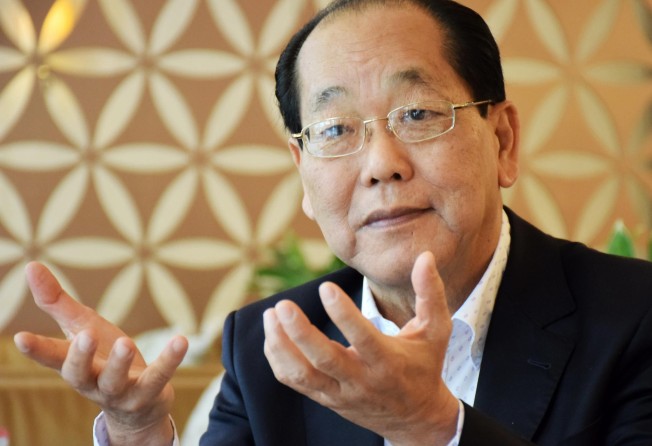Philippine banks in centre of industry shake-up
As Asean's members tighten financial and trade cooperation, countries with weaker finance industries will have to beef up their domestic banks

Southeast Asia is lined up for a windfall in bank mergers and acquisitions starting this year as countries open their doors to lenders in the region.
Financial powerhouses such as Singapore and Thailand will see their banks fan outward. Countries with weaker finance industries, such as the Philippines, will have to beef up their banks or simply welcome in the neighbours.
"You cannot stop that development," says Jose Sio, an executive vice-president at Manila-based SM Investments Corp. "We should be open to tie-ups with banks in the Asean banking sector."
Asean, short for the Association of Southeast Asian Nations, is in the throes of tightening financial and trade cooperation across the economic patchwork of its 10 member states - a task that is proving easier said than done.
The Philippines, as well as SM Investments, which owns controlling stakes in two of the country's biggest lenders, are smack in the centre of the melee.
By "tie-ups", Sio is pointing at anything from strategic partnerships to full-on buyouts of Philippine banks, which are becoming increasingly easy to pull off.
The family of SM chairman Henry Sy, the Philippines' richest man, holds controlling stakes in BDO Unibank and China Banking Corp, the two biggest banks by assets in the country but still small players regionally.
This is set to be a seminal year for how the nations of Southeast Asia treat each other's financial institutions. Last month, Asean announced an agreement that will help put Asean-based banks on domestic footing when operating in member states.
The increasing financial closeness across Asean follows a bill signed in July by Philippine President Benigno Aquino that will allow foreign banks to hold 100 per cent of voting rights in domestic institutions, opening the door for an influx of much larger regional competitors.
Consolidation, even with large foreign banks, Sio says, would be a boon for the fragmented Philippine banking sector, which is underpowered in a rapidly growing economy. The Philippines has one of the fastest projected growth rates in the region. CLSA estimated last year that the country's gross domestic product would grow 7 per cent next year, compared with 6 per cent and 4.9 per cent in Indonesia and Malaysia. It is also set to invest 5 per cent of GDP in infrastructure in 2016.
Yet Philippine banks are heavily outgunned by neighbours. Total assets in the country's banking sector were equal to just 70 per cent of total assets at DBS, Singapore's biggest bank. The comparison is similar with Malaysian and Thai banks but lenders in the Philippines still loom large above financial institutions in Myanmar and Laos.
It is gaps in development such as these that have threatened at times to unravel the already loose economic bloc where more than 620 million people live. By the end of the year, Asean will seek to form a single economic market, or what has been dubbed the "Asean economic community". A lynchpin in that process will be smooth cross-border access into underserved, fragmented markets.
With nearly 700 banks, most of which are rural and commercial lenders, the Philippines' financial sector is greatly in need of consolidation. Along with opening up its banking sector to foreign banks, the country's central bank announced last year that it would give tax incentives to large, stable banks that buy small rural lenders in a bid to expedite consolidation.
"Risks from increasing competition and dilutive acquisition in the wake of potential foreign entrants have pushed several large domestic Filipino banks to raise capital and scale up operations through the [merger and acquisition] route," BBVA said in a report last year.
BDO and China Banking have been busy in that regard. In December, BDO bought One Network Bank, a rural bank based in the country's south. China Banking completed the buyout of a similar lender, Planters Bank, in November.
These are not attempts to stave off foreign buyouts, Sio says. While Philippine banks scale up, they are also increasingly meshed with regional heavyweights.
Most recently, BDO sold a 2 per cent stake to Malaysian sovereign wealth fund Khazanah Nasional.
Sio says domestic banks have broad networks to service the country but still need funding from their bigger neighbours - exactly what regional integration is set to usher in.
"What is our future?" he asks of the Philippine banking sector. "We'll have to see what happens with Asean integration."